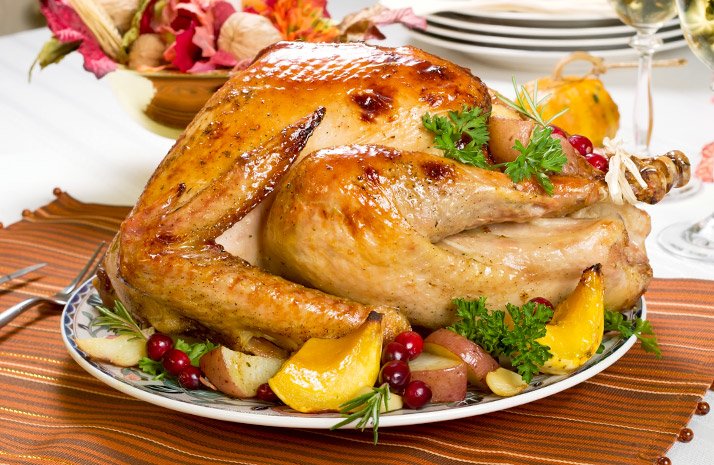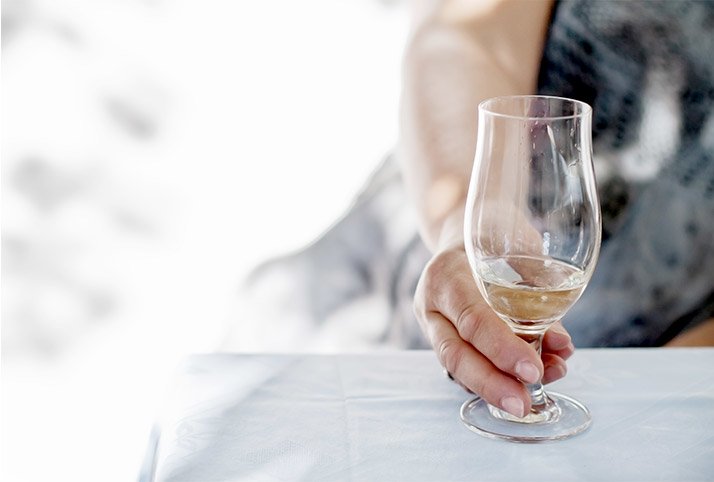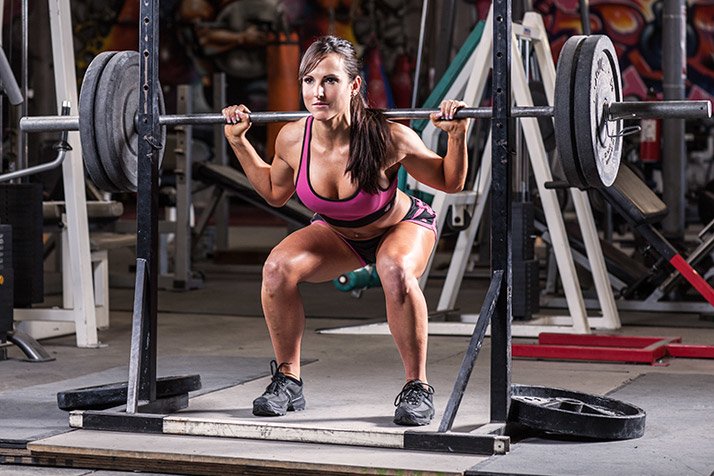
Fast Before Feast: 7 Holiday Eating Strategies
Break free from your own kitchen and eat your way through the holidays the lean and smart way!
For many people, the holiday season is a time fraught with merriment, laughter, shopping, lights, and atrocious-looking sweaters. Of course, we shan't forget the grand union of copious food and alcohol. For physique-minded folk, this can be a time that sends diet and fitness goals running away screaming.
Can you avoid all fat gain during this time? Sure, maybe if you retreated into the mountains for a couple of months, using heavily discounted bags of Halloween candy as shelter, and brought your cold chicken breasts with you.
But for the rest of us who want to enjoy our precious time (and delicious food) with loved ones, there are smarter ways to feast and still minimize fat storage. No, they don't involve eating at a large calorie deficit or running yourself to the ground on the treadmill for days preceding the event.
In fact, I highly discourage this practice because you will only end up bingeing when you commence your feast. You will be hungry and your body's hunger hormones will encourage you to go out of control.
Instead, stay in control and finish the holidays guilt-free with my 7-point holiday survival plan!
Stop eating every 3 hours
People seem to think that eating all of their food during a narrow eating window will kick-start fat storage, but I've managed to stay in tip-top shape year-round, even with my hectic travel schedule! My not-so-big secret is a protocol that I adopted from a dietary approach called intermittent fasting.
The protocol asks you to narrow your eating window to 8 hours, typically, which starts the moment you break your fast. Then you stop eating after the 8 hours are up. I've found this to be the most effective strategy to stay lean, and it works perfectly for any of big meals or events during the holiday season. I personally like to eat during a 4-hour window during the holidays, which helps me keep my holiday calories under control.
I do recommend that you be accustomed to intermittent fasting for a while first, or you may not be used to reeling in your hunger and end up bingeing when the time comes. If you've never fasted before, then the next strategy is for you.
Consume only protein before the main feast
This way, you'll feel satiated and less likely to overeat high-carb foods, fatty foods, or both at a dinner party. If you are following the 16-hour fast and 8-hour eating window, then you will likely be breaking your fast before the big dinner feast. (If you are following any other fasting protocol, then ideally, you should remain fasted up to the big dinner feast.) In the time between breaking your fast and attending the gathering, decrease your calorie intake and consume only protein—no carbs or fats.
Protein is your best bet for achieving satiety and minimizing fat storage when overfeeding.
Such protein is hard to find at your typical gathering, so you should pack low-carb protein powder with you. I like Bodybuilding.com 100% Casein, BSN Syntha-6 Isolate shake, and BSN IsoBurn Fat Burning Protein Powder Matrix.
Structure your meal for maximum satiety
If you want to exclusively eat the meal and intend to abstain from alcohol and sugary desserts, eat protein first, then fat (which will help suppress your appetite), and eat tons of veggies (veggies are, of course, low-calorie foods that will fill you up).

This specific order will likely fill you up to the point where bingeing on sugary, high-calorie foods will appear less appetizing.
CHANGE THAT STRUCTURE SLIGHTLY IF YOU PLAN ON HAVING DESSERT
What's a proper holiday dinner without Grandma's famous pumpkin or pecan pie, after all? If you've set your sights on dessert, then keep your protein and veggie intake high, but keep your fat intake to a minimum.
Is there some special sauce involved with this specific combination of macronutrients? Not necessarily. Just that if you plan on eating in caloric surplus while still intending to mitigate fat gain, note that carbs indirectly lead to fat gain because they suppress fat metabolism, making it easier for dietary fats to be stored as fat in your body.
Carbs will only contribute directly to fat gain if your glycogen stores are completely saturated, which is unlikely to happen unless you subject yourself to prolonged periods of carbohydrate overconsumption.
If you're hitting the booze, eat more protein
You don't have to abstain from alcohol to get and stay lean. What you must do, though, is aim to stay within your allotted daily calories and meet your macronutrient, micronutrient, and fiber needs. Do that and wine can accounts for the 10 to 20 percent of your daily calories that are discretionary. You can also minimize fat storage by selecting low-carb drinks such as dry wine, rum, or vodka.

Whatever you do decide to drink, ensure the calories you consume come primarily from protein and alcohol, because they both have a higher thermic effect and are both unlikely to contribute directly to fat gain by themselves. Keep your lean protein intake high and ensure your fat and carb intake remain negligible. Ideally, get your carbs and fat indirectly from your protein intake, but fiber-rich vegetables would also be an appropriate carb-intake option.
Contrary to popular belief, when you drink alcohol, it doesn't get converted into fat in your body. Instead, it disrupts your body's fat burning for hours and it can inhibit muscle protein synthesis. Besides, alcohol is loaded with empty calories that do not promote satiety. If you consume excessive calories of alcohol, carbs, and fat, then you will become the ultimate fat-storing machine.
Just avoid overdoing it on the alcohol to the point where you become inhibited, as this could encourage uncontrolled overeating. If that ship has already sailed and an alcoholic binge-fest looms into view, then reserve these crazy drinking nights for once in a great while.
Train big to eat big
If you know you are going to eat enough for a family of four, then you might as well exploit the anabolic powers of food to help you keep or make some muscle-building progress. I recommend undertaking an intense, fasted, weight-training session on a big muscle group (such as legs) before the big meal.

By doing so, you'll rev up the bonus effects of overfeeding, including an increase in your metabolic rate by approximately 6 to 8 percent for 24 hours. However, this is not that impressive, so don't start overeating just because you had a hard training session!
Enjoy yourself
The holidays are a dizzying whirlwind of never-ending shopping, work and family gatherings, as well as a plethora of fruit cakes and leftovers. In the end, all these things are worth it when you can spend some time with loved ones and be able to reflect on your accomplishments for the year as well.
You can't stay locked in your kitchen for life. I want you to be able to go out for dinner and attend holiday parties. With the strategies I mentioned, you'll be able to keep the physique progress going while enjoying yourself!
Adapted with permission from "Fat Loss Fast! Theoretical Guide to Intermittent Fasting, Part 2," by Dr. Sara Solomon (DrSaraSolomon.com Inc., 2014).

